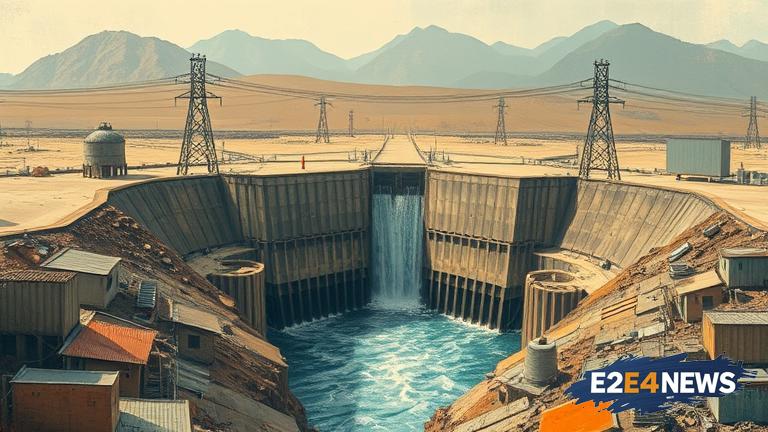Iran is currently grappling with a severe water and power crisis, which has sparked widespread concern among its citizens. The crisis is a stark reflection of the regime’s administrative failure and its inability to manage the country’s resources effectively. The water shortage has affected various provinces, with many residents struggling to access clean drinking water. The power crisis has also led to frequent blackouts, disrupting daily life and economic activities. The regime’s mismanagement of the crisis has exacerbated the situation, with many Iranians taking to social media to express their frustration and outrage. The government’s response to the crisis has been criticized for being inadequate and ineffective. The water and power crisis is not only a humanitarian issue but also a political one, with many seeing it as a symbol of the regime’s incompetence and lack of accountability. The crisis has also highlighted the need for urgent reforms and a more transparent and accountable governance system. The Iranian government has been accused of prioritizing its own interests over the needs of its citizens, leading to a breakdown in trust and a sense of disillusionment among the population. The water and power crisis is just one of the many challenges facing Iran, with the country also struggling with economic stagnation, corruption, and human rights abuses. The regime’s fear of public outrage has led to a crackdown on dissenting voices, with many activists and journalists being arrested and silenced. Despite the challenges, many Iranians remain hopeful that the crisis can be overcome and that the country can be rebuilt on a more sustainable and equitable basis. The international community has also been urged to support the Iranian people in their struggle for a better future. The water and power crisis in Iran is a complex issue that requires a comprehensive and multifaceted solution. The regime must take immediate action to address the crisis, including investing in new infrastructure and implementing more efficient management systems. The government must also prioritize transparency and accountability, ensuring that citizens have access to accurate information and can hold their leaders to account. Furthermore, the international community must play a supportive role, providing humanitarian aid and technical assistance to help Iran overcome the crisis. In addition, the regime must address the root causes of the crisis, including corruption, mismanagement, and a lack of investment in critical infrastructure. The water and power crisis in Iran is a wake-up call for the regime and the international community, highlighting the need for urgent action to prevent a humanitarian disaster. The crisis has also sparked a debate about the role of government in managing natural resources and providing basic services to citizens. Many experts argue that the crisis is a result of the regime’s centralized and authoritarian approach to governance, which has led to a lack of accountability and transparency. Others argue that the crisis is a result of decades of mismanagement and corruption, which have depleted the country’s resources and undermined its infrastructure. The water and power crisis in Iran is a stark reminder of the need for good governance, transparency, and accountability. The regime must take immediate action to address the crisis and prevent a humanitarian disaster. The international community must also play a supportive role, providing humanitarian aid and technical assistance to help Iran overcome the crisis. In conclusion, the water and power crisis in Iran is a complex and multifaceted issue that requires a comprehensive and urgent solution. The regime must prioritize transparency, accountability, and the needs of its citizens, while the international community must provide support and assistance to help the country overcome the crisis.
